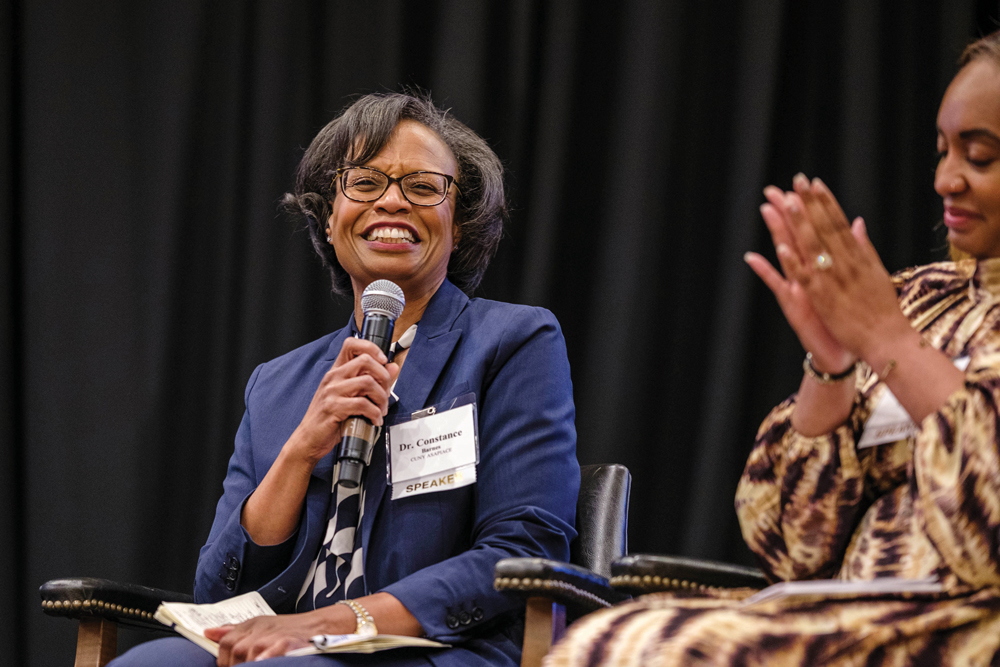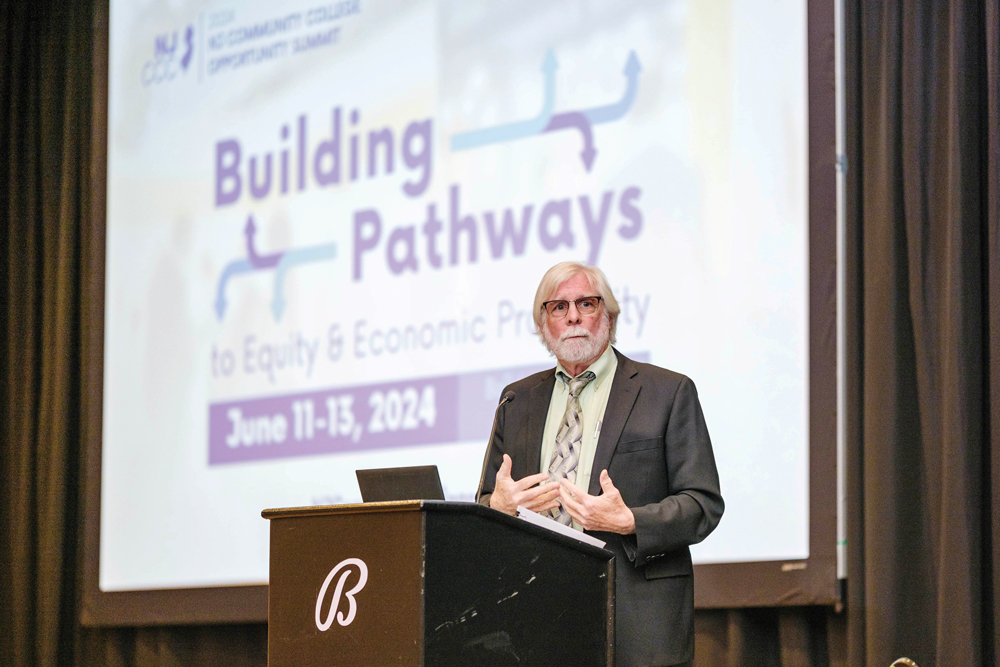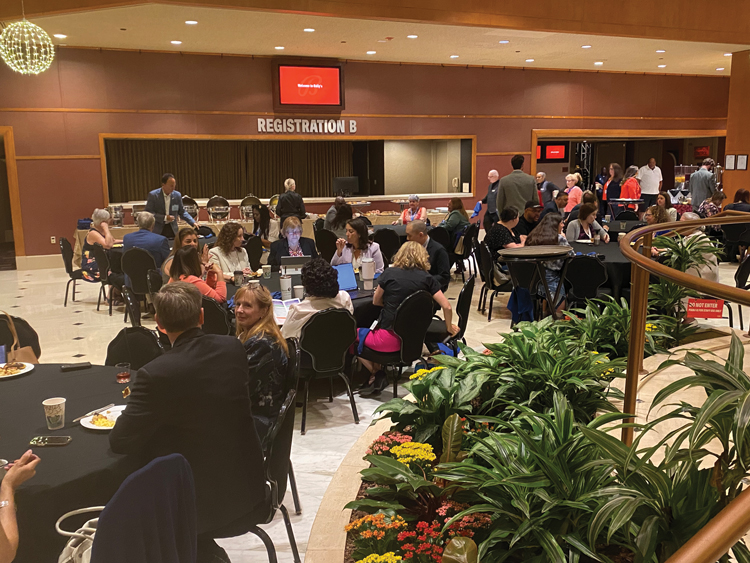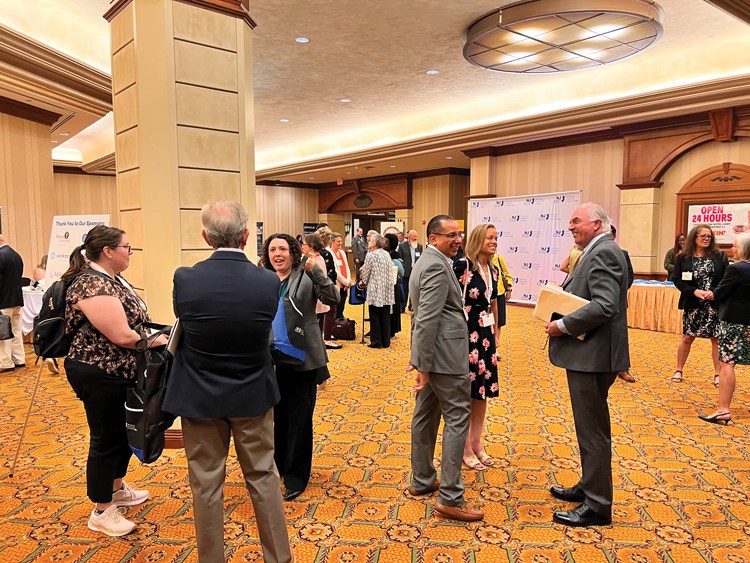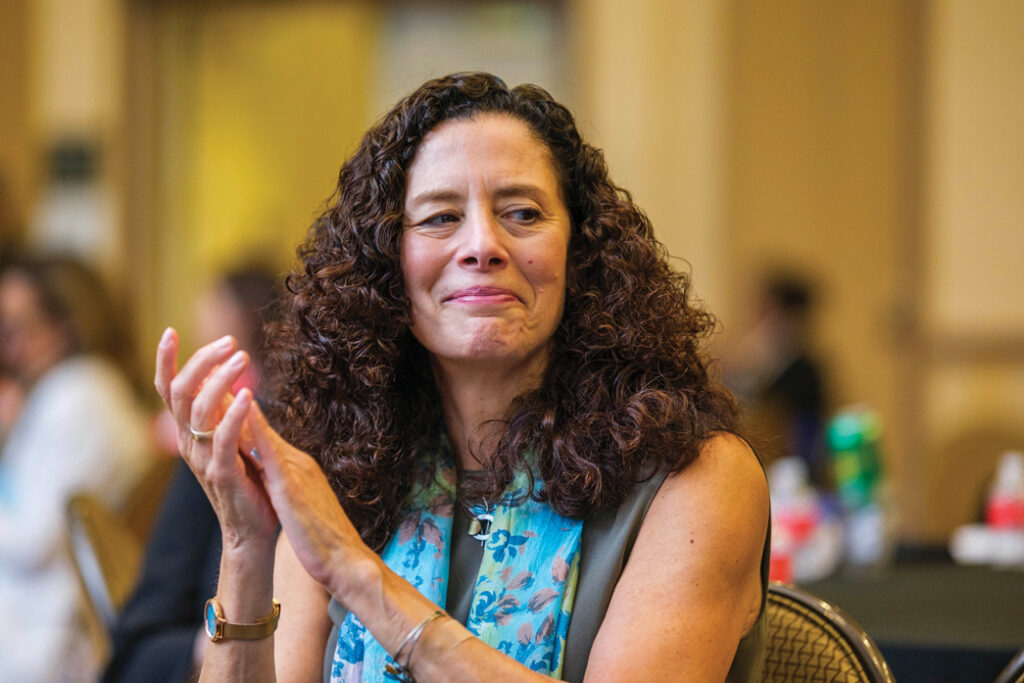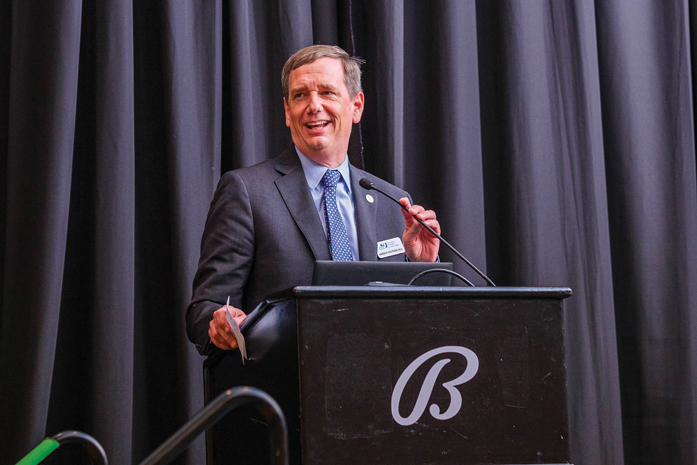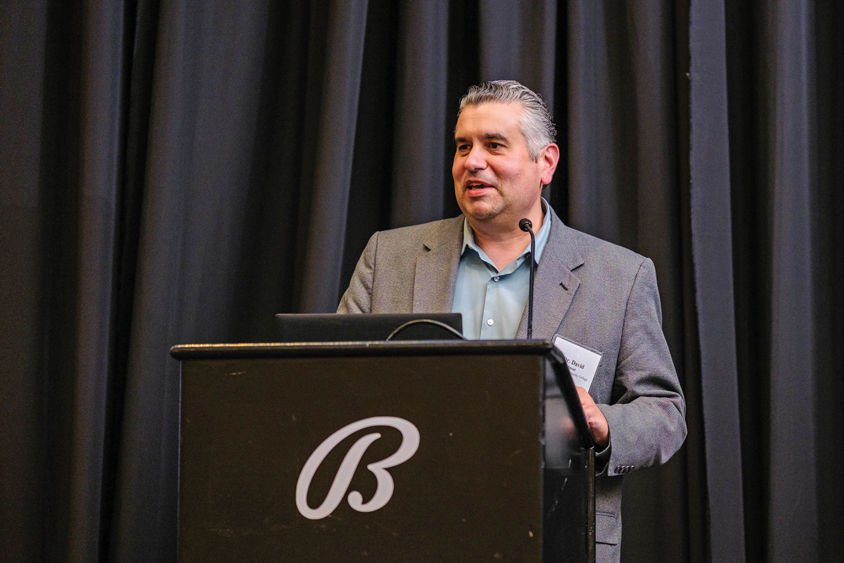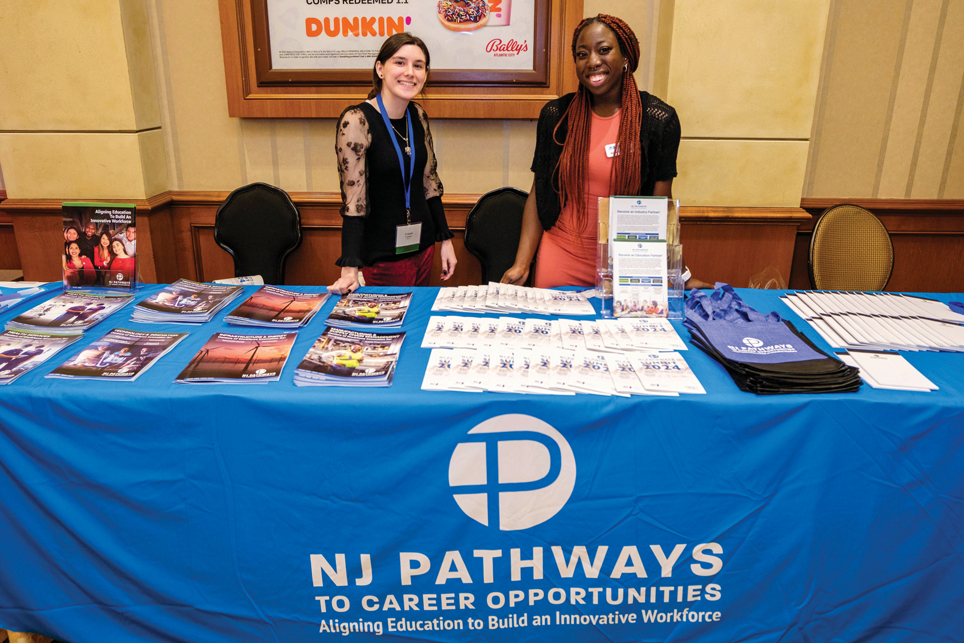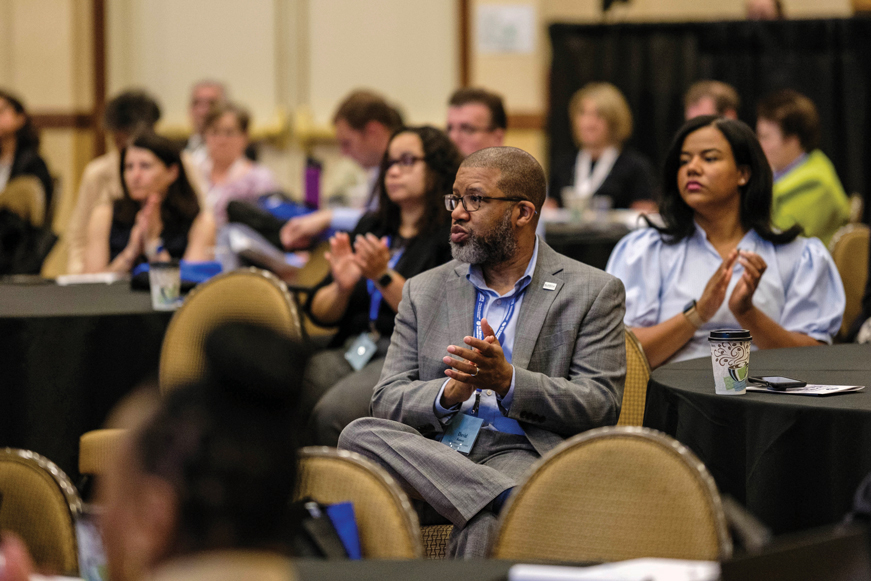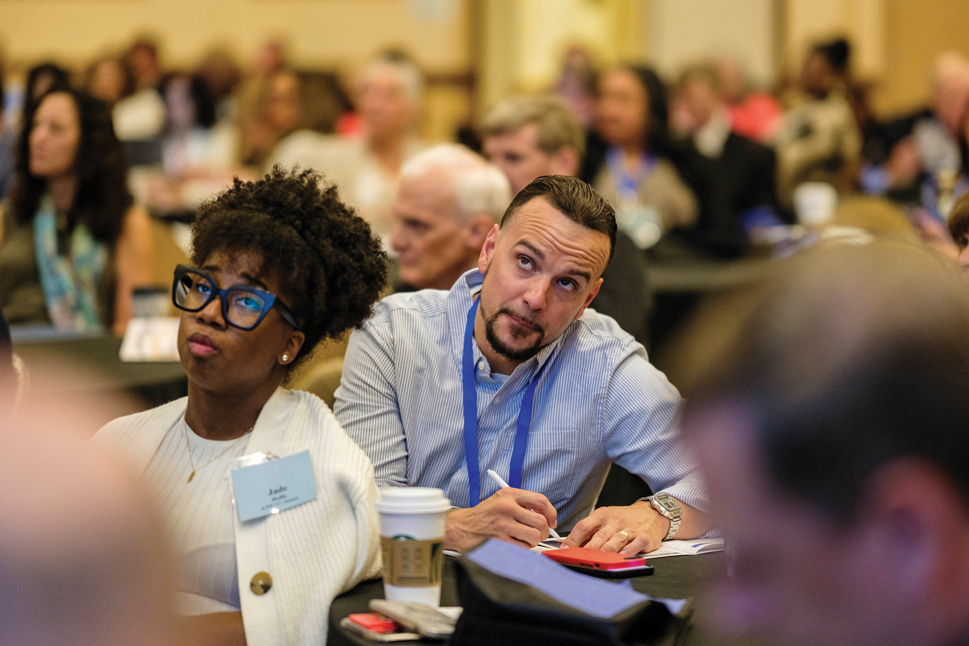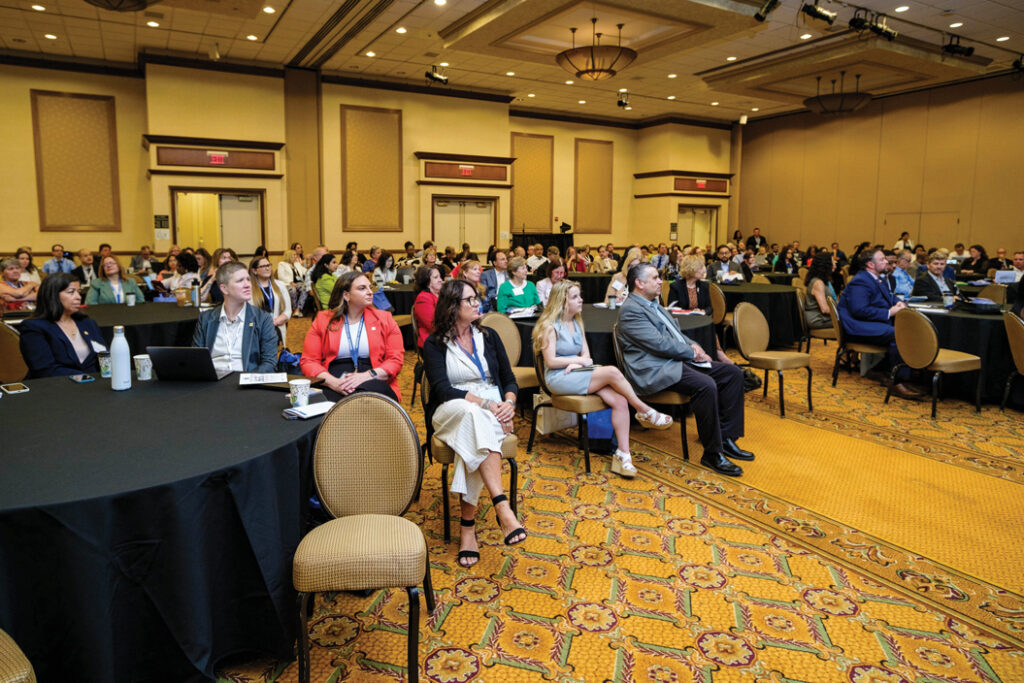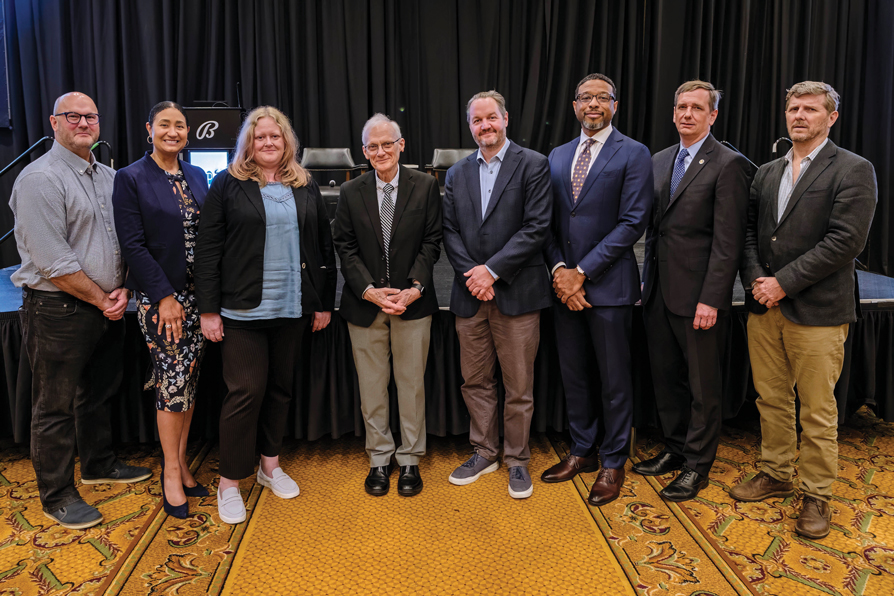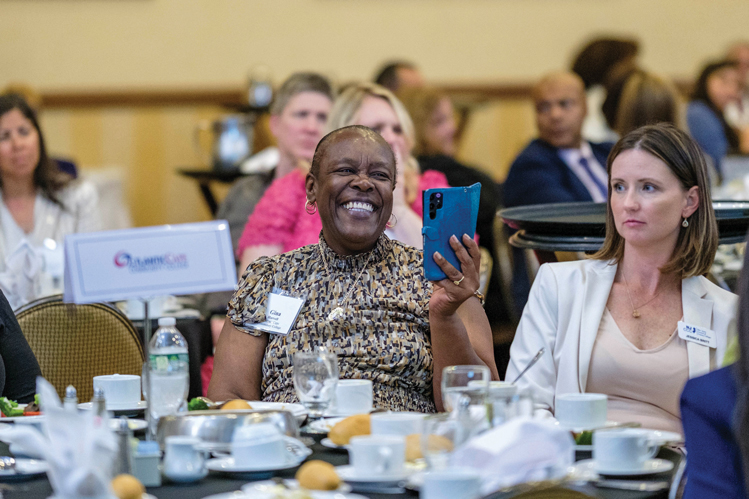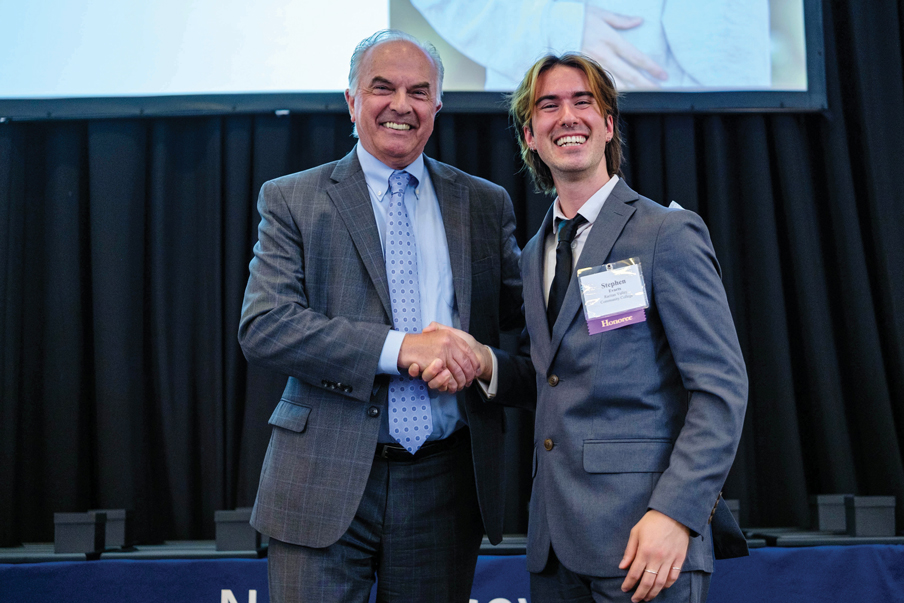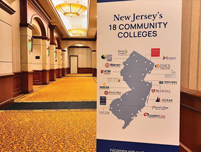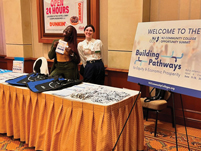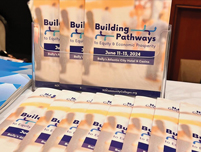New Jersey Community College Opportunity Summit
As a vital part of the higher education ecosystem, community colleges play a key role in responding to the economic, demographic, technological, social, and environmental shifts impacting New Jersey. To discuss these current challenges and the strategies for helping transform education to better support student success, the New Jersey Council of County Colleges (NJCCC) held their inaugural Opportunity Summit on June 11-13, 2024 in Atlantic City. Along with community college leaders, faculty, and staff, the Summit welcomed partners from high schools, college, universities, unions, community-based organizations, state and local government, and the public workforce system.
The three-day event focused on NJCCC’s Opportunity Agenda which is centered around equity, collaboration, opportunity, and innovation. “We’re in a time of rapid change and our colleges are working diligently to respond to these changes and keep on the cutting edge of helping more students earn degrees and credentials that will help them lead quality lives,” says Aaron R. Fichtner, Ph.D., President, New Jersey Council of County Colleges. “We felt it was important to bring colleges together to share insights and information, while also hearing from national thought leaders about the challenges many of us are confronting in higher education.”
Expanding Education and Workforce Partnerships
The first day of the Opportunity Summit focused on the Opportunity Agenda where state and national experts shared unique insights into navigating the evolving world of education. The second day was the NJ Pathways to Career Opportunities Summit and discussed ways to expand innovative education and workforce partnerships. In partnership with the New Jersey Business and Industry Association, the NJ Pathways to Career Opportunity Initiative has joined together government, industry, union, and education partners to build stackable education and training opportunities.
The third day highlighted the Community to Opportunity Initiative which provides holistic support to community college students and addresses food insecurity, childcare issues, and mental health and wellness. “This event was uniquely structured and offered the opportunity to attend one or two days or all three,” says Maria Heidkamp, Chief Innovation and Policy Officer, New Jersey Council of County Colleges. “We had five hundred attendees in total and many colleges had teams of five or six people representing different areas, including leadership, academic affairs, student services, data services, and workforce development. We heard through feedback that they appreciated being able to come to one conference together and participate as a team.”
“The lunch panel, Serving New Jersey’s Justice-Impacted Individuals, discussed the work that our colleges are doing to serve justice-impacted student. Governor McGreevy was a part of this session and the presentation had many great speakers and inspiring moments. It highlighted three amazing programs that are helping individuals who are either in prison or are on probation and giving them opportunities to succeed.”
— Aaron R. Fichtner, Ph.D.
President, New Jersey Council of County Colleges

Building Pathways to Equity and Economic Prosperity
New Jersey’s community colleges continue to help a diverse group of students achieve their academic goals and have worked within their organization and collectively with other institutions to expand instruction, build partnerships with high schools, four-year colleges and universities, nonprofits, and businesses; and improve student outcomes. To meet this core mission and effectively address equity challenges, community colleges within the state have committed to following four action pillars outlined in the Opportunity Agenda. Dr. Fichtner explored these pillars with Summit attendees and how these collective priorities can help promote equitable academic, social, and economic mobility for the greater community:
Pillar 1: Helping all high school students access pathways to postsecondary and career success. Strategies include ensuring all high school students have the opportunity to earn at least six college credits while in high school and understand their options for further education and a career.
Pillar 2: Fostering student success and completion in postsecondary education and training. To achieve this mission, there is a commitment to make community college tuition-free through an expansion of the Community College Opportunity Grant (CCOG) program. There is also a drive to invest in a statewide student success initiative targeting low-income and underrepresented students, student parents, justice-impacted students, students with disabilities, veterans, and others.
Pillar 3: Building transparent, seamless, and stackable pathways that respond to the changing economy. In collaboration with four-year institutions, state leaders, and technologists, New Jersey community colleges aim to revitalize general education and address the implications of AI for students, staff, and faculty. Strategies also include ensuring all students can complete paid internship work experience, embedding workforce credentials in community college programs, and building statewide and regional pathways connecting students to credentials, degrees, and lifelong learning.
Pillar 4: Helping adults attain the credentials they need for career mobility and labor market success. To achieve this goal, strategies include funding noncredit programs for low-income students and developing a consistent, statewide approach to Credit for Prior Learning (CPL)/Prior Learning Assessment (PLA).
“The Opportunity Agenda was released publicly in March, and we were able to do a larger public rollout at the Summit,” says Fichtner. “To get the buy-in and support of all eighteen community colleges in New Jersey, it took several months of discussion around which pillars to select,” adds Heidkamp. “We reached a consensus around these action pillars and the strategies that support them. The community recognizes that technology is advancing and what that means for the workforce. Colleges are also identifying that there are large equity gaps. The point of the Agenda is to build upon the current momentum happening within community colleges around holistic student support and workforce development and determine how we can capitalize on what is already underway to shape our focus going forward.”
Fichtner adds, “We’re making a series of bold efforts to help our eighteen community colleges continue to make strides in equity, access, and success. Each pillar iIs part of a broader strategy and we want to empower institutions as they innovate and evolve to meet the rapidly-changing world that we live in.”
In addition to sharing details of the Opportunity Agenda, day one of the Summit included the session, Amid AI Revolution: Opportunities for Community College Innovation, presented by Dave Cole, Chief Innovation Officer, State of New Jersey, and Developing Community College AI Programs: Lessons from an AI Pioneer on Equity, Academics, Industry Partnerships, and Degrees, presented by Dr. Madeline Burillo-Hopkins, Vice Chancellor Workforce Instruction and President Southwest College, Houston Community College.
Expanding Innovative Education and Workforce Partnerships
The second day kicked off with a breakout session, Reckoning with Relevance: 2024 State of the Sector, led by Dr. Tara Zirkel, Director, Strategic Research, EAB, followed by The Success of the New Jersey Pathways to Career Opportunities Initiative, presented by Dr. Michael McDonough, President, Raritan Valley Community College, and Catherine Starghill, Esq., Vice President, New Jersey Council of County Colleges and Executive Director, New Jersey Community College Consortium for Workforce and Economic Development. “Day one invited nationally known speakers who spoke on very timely and important topics,” says Heidkamp. “Day two was a mix of national speakers and presenters who highlighted some of the workforce projects going on at our colleges.”
Additional sessions included Education Pathways and The Future of Work presented by Charlotte Cahill, Associate Vice President, Education, Jobs for the Future, and Industry and Pathways: The Intersection of Education and Workforce Development, led by Amanda Winters, Program Director, Post-Secondary Education, National Governors Association; Keith Witham, Vice President of Education Philanthropy, Ascendium Education; and Paul Fain (Moderator), Journalist, Work Shift and The Job, and The Cusp Podcast. The afternoon session, New Jersey Pathways to Career Opportunities: Centers of Workforce Innovation Highlights, included representation from a variety of industries, including aseptic processing and biomanufacturing, film and television production, esports production, and robotics and automation.
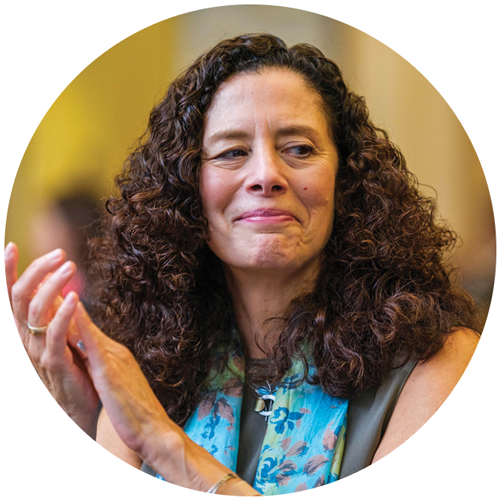
“This event was uniquely structured and offered the opportunity to attend one or two days or all three. We had five hundred attendees in total and many colleges had teams of five or six people representing different areas, including leadership, academic affairs, student services, data services, and workforce development. We heard through feedback that they appreciated being able to come to one conference together and participate as
a team.”
— Maria Heidkamp
Chief Innovation and Policy Officer, New Jersey Council of County Colleges.
Expanding Innovative Education and Workforce Partnerships
The second day kicked off with a breakout session, Reckoning with Relevance: 2024 State of the Sector, led by Dr. Tara Zirkel, Director, Strategic Research, EAB, followed by The Success of the New Jersey Pathways to Career Opportunities Initiative, presented by Dr. Michael McDonough, President, Raritan Valley Community College, and Catherine Starghill, Esq., Vice President, New Jersey Council of County Colleges and Executive Director, New Jersey Community College Consortium for Workforce and Economic Development. “Day one invited nationally known speakers who spoke on very timely and important topics,” says Heidkamp. “Day two was a mix of national speakers and presenters who highlighted some of the workforce projects going on at our colleges.”
Additional sessions included Education Pathways and The Future of Work presented by Charlotte Cahill, Associate Vice President, Education, Jobs for the Future, and Industry and Pathways: The Intersection of Education and Workforce Development, led by Amanda Winters, Program Director, Post-Secondary Education, National Governors Association; Keith Witham, Vice President of Education Philanthropy, Ascendium Education; and Paul Fain (Moderator), Journalist, Work Shift and The Job, and The Cusp Podcast. The afternoon session, New Jersey Pathways to Career Opportunities: Centers of Workforce Innovation Highlights, included representation from a variety of industries, including aseptic processing and biomanufacturing, film and television production, esports production, and robotics and automation.
Holistic Student Supports
Day three of the Opportunity Summit explored a variety of topics, including enhancing institutional access through online learning, transforming the local workforce ecosystem, and flexible work arrangements. Attendees could also learn more about AI in teaching, integrating grant offices into finance and procurement, and SNAP employment and training. “After sending out a request for presentations, we added sessions to the Summit agenda by a selection committee,” explains Linda Scherr, Chief Academic Officer, New Jersey Council of County Colleges. “Along with invited keynotes and plenary sessions, we wanted to give faculty and staff within the community an opportunity to share best practices and insights with their peers. It was a great blend of topics and presenters and led to unique collaborations that may not have been previously possible.”
Heidkamp adds, “Along with giving us an opportunity to officially kick off the Opportunity Agenda, this event allowed us to connect with several organizations we hope to partner with moving forward. Many are social justice groups, like the New Jersey Institute for Social Justice and the United Way. We also had business groups, like the Statewide Hispanic Chamber, the New Jersey Business and Industry Association, and the Council on Humanities. These are all partners that are reflected in the four pillars and we look forward to joining forces and creating a stakeholder group who can help move the needle in a positive direction.”
“We see students at many different stages of their lives. They may come to community college for one goal, and then come back later for further career development. We want to be their partner for life and be an anchor institution for our communities. A conference like the Opportunity Summit allows us to showcase this mission and identify how we can work together in a coordinated fashion to help students gain the knowledge and skills necessary to make an impact in the workforce.”
— Linda Scherr
Chief Academic Officer, New Jersey Council of County Colleges

Memorable Event Highlights
Throughout the Summit and the Holistic Student Supports Convening, national and state thought leaders shared their perspectives on key issues facing higher education and how all organizations can work together to ensure students and workers are prepared to thrive in an innovative economy. “There were so many great moments throughout the three-day event,” reflects Fichtner. “I really enjoyed Dr. Chauncy Lennon’s presentation, Pathways: Equity and Access to High Quality Industry Credentials and Associate Degrees. He did an excellent job framing where we are in higher education and our society and what actions we will need to take going forward.”
“The lunch panel, Serving New Jersey’s Justice-Impacted Individuals, discussed the work that our colleges are doing to serve justice-impacted students,” continues Fichtner. “Governor McGreevy was a part of this session and the presentation had many great speakers and inspiring moments. It highlighted three amazing programs that are helping individuals who are either in prison or are on probation and giving them opportunities to succeed.”
The session, Developing Community College AI Programs: Lessons from an AI Pioneer on Equity, Academics, Industry Partnerships, and Degrees, led by Dr. Madeline Burillo-Hopkins, Vice Chancellor, Workforce Instruction and President Southwest College, Houston Community College, was among Heidkamp’s favorites of day one. “Dr. Burillo-Hopkins has helped lead the efforts at her college to develop AI associate degrees, as well as bachelor’s degrees in AI and robotics. She was very energetic and passionate about the subject and encouraged attendees to embrace this rapidly growing trend.”
Putting on such an event involves a great deal of planning and moving parts, but overall NJCCC feels it was a great success. “I think we were able to maximize the range of topics and engage people across many issues,” shares Heidkamp. “We continue to receive tremendously positive feedback and there is already momentum and encouragement to prepare for next year.” Fichtner adds, “From our conversations with college presidents and leaders, there was a real excitement about being together with colleagues from across the state. Many community colleges said they appreciated having an opportunity for their teams to spend time together off campus and listen to national experts and partners explore different topics that are pertinent to everyone in the education space.”
The Important Role of Community Colleges
Community college graduates play a vital role in the success of the state’s key industries, including manufacturing, technology, health care, education, and renewable energy. “NJCCC serves 240,000 students, where half of all undergraduate students in public higher education and forty percent of all college students in New Jersey are at a community college,” says Fichtner. “Our colleges are comprehensive institutions that serve a wide variety of purposes and help people advance their lives and gain family-supporting careers. We want to make sure that everybody in our community has opportunities, which is where our relentless focus on equity comes into play. We also place priority on helping high school students earn college credit and become inspired to continue their journey after graduation.”
“We see students at many different stages of their lives,” adds Scherr. “They may come to community college for one goal, and then come back later for further career development. We want to be their partner for life and be an anchor institution for our communities. A conference like the Opportunity Summit allows us to showcase this mission and identify how we can work together in a coordinated fashion to help students gain the knowledge and skills necessary to make an impact in the workforce.”
Heidkamp says businesses are increasingly turning to community colleges to be their academic and workforce partners. “The value of community colleges continues to gain recognition and we’ve done a great deal in recent months to show the important role these institutions play in New Jersey. Historically, there was some stigma attached to community colleges, but thankfully, that viewpoint is changing and more people are recognizing the unique service they can provide in creating a skilled workforce, advancing the state’s innovation economy, and enriching the community for all.”
To learn more about the NJCCC’s vision, initiatives, and upcoming events, visit njcommunitycolleges.org.


